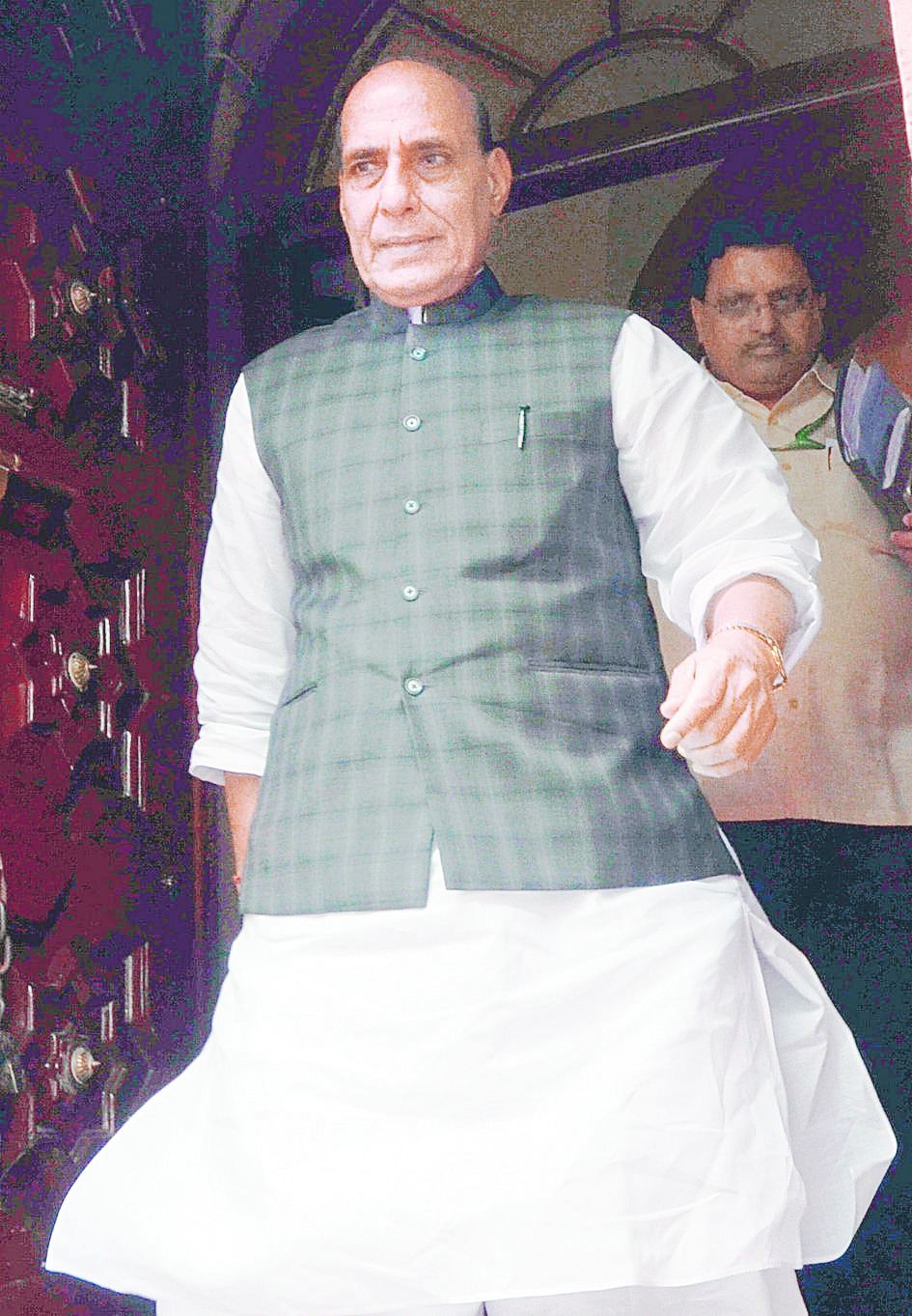
New Delhi, July 18: The government today rejected a referendum on Kashmir's independence as an "outdated and irrelevant" concept but kept a window open for talks with the Kashmiri people.
The response came as the Centre faced Opposition fire in the Rajya Sabha for its handling of the unrest that broke out in the Valley after the security forces shot dead militant Burhan Wani on July 8.
"More than 'Kashmir hamara hai', the need of the hour is 'Kashmiri hamara hai'," was the Opposition refrain as members underscored the need to reclaim Kashmir's soul and not just its soil.
Although free of acrimony, the three-and-a-half-hour discussion marked the difference between the approaches of the two sides. While home minister Rajnath Singh called the unrest "Pakistan-sponsored", the Opposition argued that the trust deficit was home-grown.
The Opposition calibrated its interventions carefully, mindful of the need not to let the debate exacerbate the situation.
When it urged the government to start a political process instead of using guns to silence the protesters, Rajnath suggested such an effort was under way.
"I told chief minister Mehbooba Mufti on Saturday that I want to visit the Valley but do not want to stay in the governor's house. I want to stay in the Nehru guesthouse and speak directly to the people of Kashmir," he said.
"She welcomed my proposal but suggested that I visit after the situation eases. She said she would come to Delhi first and discuss with officials and me the modalities of how to start the dialogue."
Earlier, the leader of the House Opposition, Ghulam Nabi Azad, had blamed the crisis on the inherent contradictions in the state's ruling PDP-BJP coalition and the divisive statements by Sangh parivar members.
Leader of the House and finance minister Arun Jaitley provided the counter, terming the clashes a "battle between this country and separatists" and pointing to Pakistan's failure to reconcile to the idea of Jammu and Kashmir as a part of India.
Jaitley admitted that Amarnath pilgrims and local people had not been targeted after Wani's killing but added: "No country can watch its police being attacked."
Both ministers maintained that the extent of force used was debatable. Rajnath was non-committal to the demand to stop using pellet guns - supposedly non-lethal but responsible for eye injuries to over 100 protesters - in the Valley.
Azad insisted the situation was worse compared to the 1990s and demanded to know why pellet guns had not been used on rioters in Haryana earlier this year.
He also castigated what he described as a selective clampdown on the media in Kashmir when critics of Islam - he cited Bangladeshi author Taslima Nasreen as an example - were being allowed on primetime TV debates.
Trinamul member Derek O'Brien accused the Centre of mishandling the situation.
Janata Dal United member Sharad Yadav advised the government to try and win hearts and not just try to retain the land.
"There is no alternative to a political process," Sitaram Yechury of the CPM said, stressing the need to look for solutions within.
T. Siva of the DMK said the frequent talk from within the BJP family of abrogating Article 370 was bound to make Kashmiris wary.
Congress member Karan Singh, whose father Raja Hari Singh had signed the Instrument of Accession to India in 1947, described the clashes as an "unprecedented outburst" of frustration and anger.
"Is the nation awake and aware of their pain? If we say that Kashmir is a part of India, then India has to share their pain," he said.
Singh invoked " satyameva jayate" (the truth alone triumphs) to stress the need to accept the "bitter and uncomfortable" reality that India faced a serious problem of trust and credibility in the Valley.










